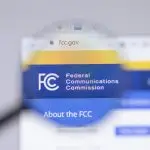Top 3 Tips for Maintaining TCPA Compliance
In today’s digitally connected world, reaching out to potential customers is a crucial part of business growth. However, with this outreach comes the responsibility of adhering to the Telephone Consumer Protection Act (TCPA) regulations. Non-compliance can lead to hefty fines and a tarnished reputation. This article explores the top three strategies to ensure TCPA compliance, safeguarding your business from legal pitfalls.
1. Implement Rigorous Consent Verification Processes
One of the fundamental principles of the TCPA is obtaining prior “express written consent” from individuals before contacting them via call or text, rather than simply “express consent”. What exactly is express written consent? How is it different from express consent?
The distinction between TCPA express consent and express written consent lies in their formation and scope. Express consent, not formally defined by the FCC, implies permission to contact based on actions like sharing a phone number with a service provider. In contrast, express written consent, as per FCC guidelines, is a documented agreement authorizing telemarketing calls or messages via automated systems or pre-recorded voices, requiring the recipient’s phone number and electronic signature.
If you are generating business through a website or a contact form, ensure that your website has TCPA opt-in language that clearly states consent in order to protect yourself from non-compliance ramifications.
2. Regularly Update Compliance Protocols to Reflect Changing Regulations
The landscape of TCPA regulations is not static; it evolves frequently, making it essential for businesses to stay informed and adapt their practices accordingly. Assigning a team (or a trained individual) to monitor changes to federal compliance regulations can be the defense mechanism that preserves you from TCPA litigation. More importantly, ensuring that your organization is proactively adjusting its operation in order to remain compliant is crucial to its ongoing success.
For example, the FCC implemented a law, effective July 2023, which states that parties must obtain express consent prior to making residential calls using an artificial or prerecorded voice that would exceed the newly established call limits, which are a maximum of three voice calls per week. If your firm falls under this example, make sure that you are acquiring express consent before making these calls.
3. Educate and Train Staff on TCPA Guidelines
The final pillar in maintaining TCPA compliance is thorough and ongoing staff training. Every team member involved in customer outreach should understand the importance of TCPA compliance and how to adhere to its guidelines. Regular training sessions should be conducted to educate employees about the nuances of obtaining and handling consent. This training should also cover the consequences of non-compliance, both for the individual and the company.
An educated and prepared team of professionals at the helm of your business is your strongest line of defense against non-compliance. The Federal Communications Commission offers guides on unwanted telephone marketing calls, updates in laws, major orders, notices, and events. This is a good resource for staff and anyone making outbound calls to follow. You can take a look at the page here.
Legal Brand Marketing and TCPA Compliance
Legal Brand Marketing takes TCPA compliance seriously. All of the forms on our websites have TCPA opt-in language and ensure express consent from users, thereby protecting your business from legal risks while you focus on growth. Legal Brand Marketing also has partnered with Active Prospects and is using their product TrustedForm, which collects form, fill, and opt-in certificates that prove direct consent.
Legal Brand Marketing does not use artificial or prerecorded voice dialing when verifying lead information. All of our lead verification is done by live agents. If you have questions about Legal Brand Marketing’s TCPA compliance or the products we use for TCPA opt-in verification, click here or call 1-818-884-8075.






